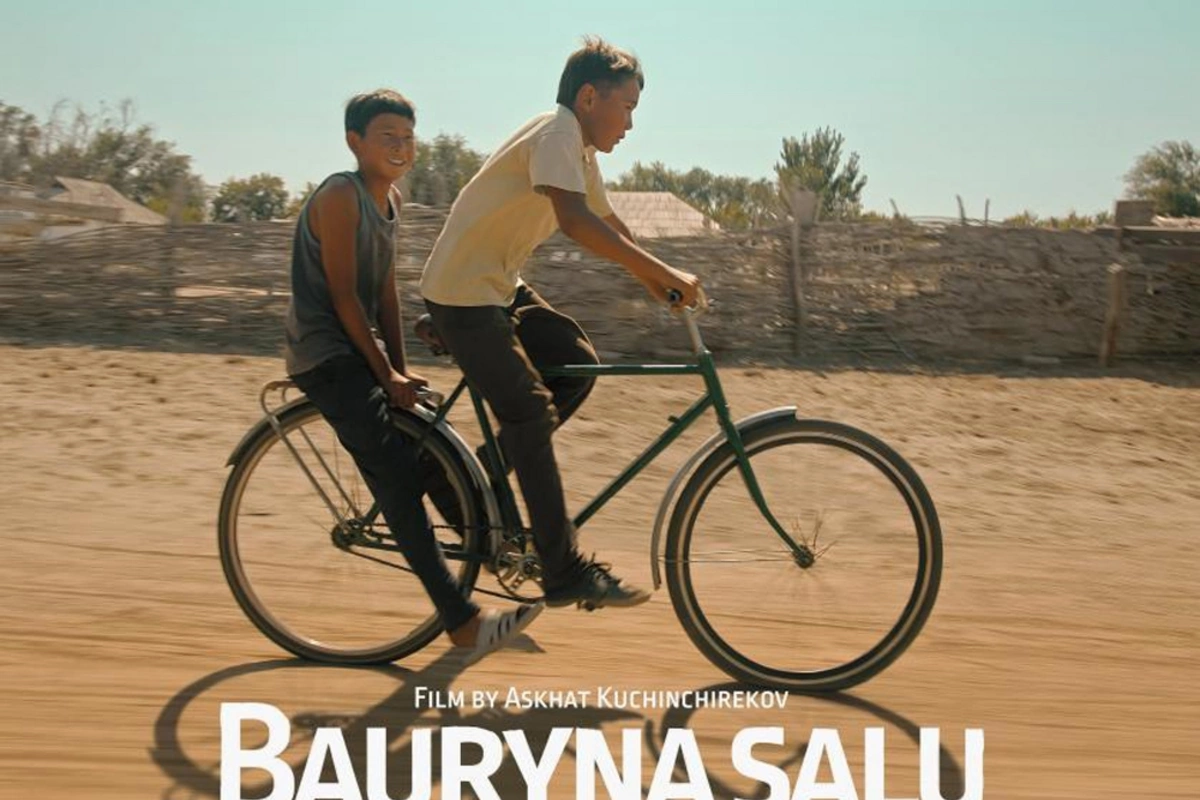
(Movie poster)
On November 15, the Kazakhstani film “Bauryna Salu” was accepted as a candidate by the Academy Awards in the Best International Feature category. The film tells the story of a 12-year-old boy named Yersultan, who was given away to his grandmother by his parents at an early age, The Caspian Post reports citing Global Voices.
This was done under a Kazakh tradition called “bauryna salu” (giving away to a relative). It was customary for young parents to give away their eldest or youngest child to their grandparents or older relatives. Once they reach a certain age, children can choose to stay with their adopted family or original parents.
Following the death of his grandmother, with whom he spent the last 10 years of his life, Yersultan has to return to and live with his parents. The main focus of the story are his struggles of connecting with and building emotional attachments with his parents, after a lengthy separation, which has turned them into practically strangers. In this regard, the film explores the dark side of the centuries-old tradition that is still practiced in Kazakhstan, affecting many families and particularly children.
Here's the film's trailer:

In fact, the movie’s director Askhat Kuchinchirekov experienced it first-hand - he was raised by his grandmother, after his parents decided to give him away. As someone traumatized by this experience, Kuchinchirekov shared that it was important for him to tell the story from Yersultan’s point of view and relay his emotions and experiences. In addition to directing, Kuchinchirekov also wrote the film’s script. The film came out in 2023, but was released in domestic movie theaters in July 2024.
The film has stirred heated public discussions on the tradition of bauryna salu, including its origins, relevance in the modern world, and most importantly, the effect on adults and children. Originally, the tradition emerged as a means of strengthening family ties in tight-knit and compact nomadic communities. It was also used as way to share the workload of childcare in times when there were no kindergartens. Some explain its existence as a means to console lonely elders and childless families, so they too can experience parenthood and have company.
Supporters argue on social medal that the tradition still has a place in the modern world, since it allows children to grow up with close relatives who have more experience with and knowledge of raising children. This argument is built on the premise that first time parents lack childcare experience. They also argue that the practice shields children from potential parental abuse and provides them with an opportunity to grow up in an environment filled with unconditional love from grandparents.
Opponents, on the other hand, claim that the practice results in emotional trauma for children, creating long-term abandonment and other issues. They argue that it is best for children to grow up with their parents because, once separated, they will have a hard time reconnecting with them and may feel lonely once their grandparents pass away.
Besides stirring these discussions, the film has participated in and won multiple awards at international film festivals. The most impressive of them are the national Tulpar Film Award in the best film category and the Asia Pacific Screen Award in the best youth film category. Even it fails to be to be shortlisted for or win the Academy Award, it has already become one of the most impactful films of its generation.
Share on social media